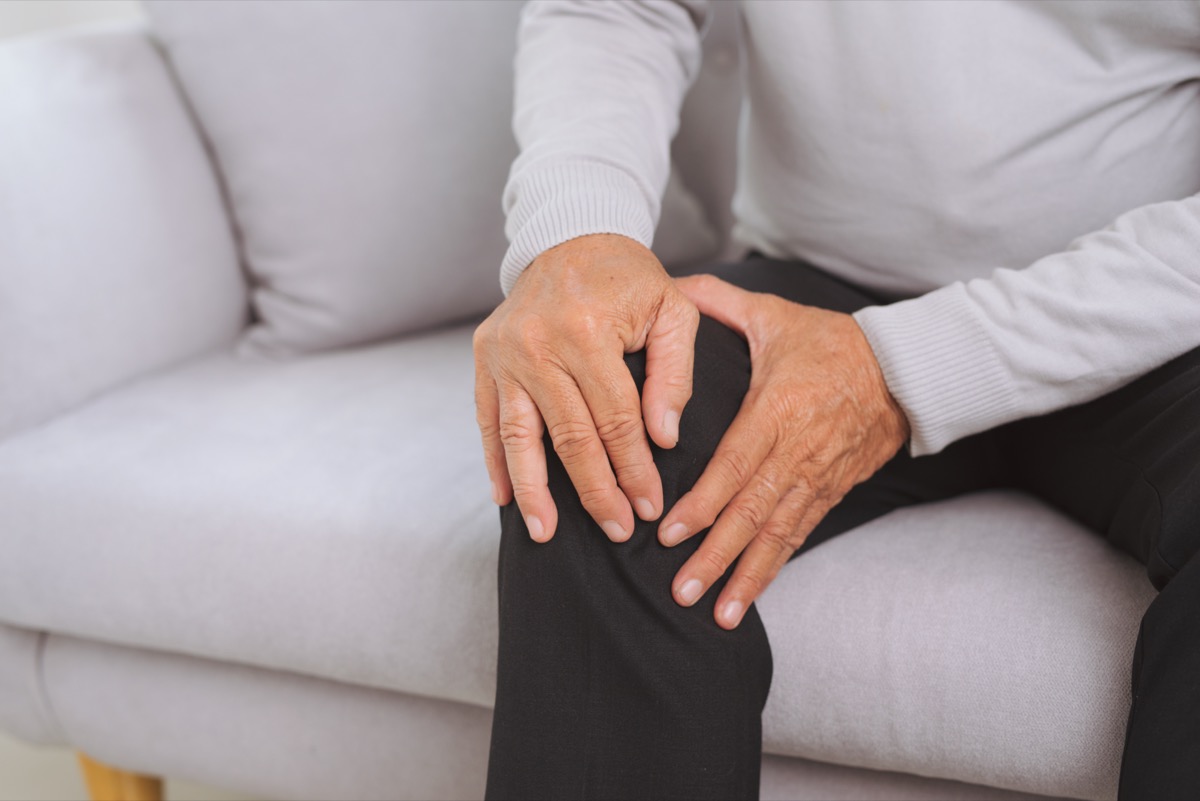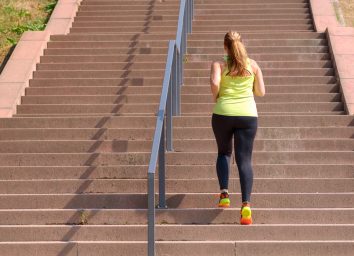Totally Crazy Ways Bad Weather Affects Your Body, Say Doctors

It's an age-old question every grandfather with creaky knees claims to know the answer to: Can the onset of inclement weather actually be detected by our stiff, aging bodies? Turns out the answer is a resounding yes—and you don't have to be an older person to experience it. For some of the totally weird ways bad weather affects your body, read on, because we've included at least some of them right here. And for more amazing facts about your body, see here to learn What Walking on a Treadmill Does to Your Body, Say Experts.
You Can Get Headaches

It's not just an old wives' tale: Bad weather can cause headaches. In fact, in 2015 researchers in Japan revealed that headache medicine sales were directly correlated to drops in atmospheric barometric pressure, which is what happens before really bad weather strikes. In a new article for The Conversation, Durham University professor of neuroscience Amanda Ellison, Ph.D, explains how it works.
"There are two mechanisms of action here," she writes. "One is related to the sinuses—the four small air-filled cavities in the bones of the face. Just as people's ears "pop" when air pressure changes, atmospheric pressure changes can create an imbalance in sinus pressure causing inflammation and pain. This feels different depending on which sinus is most affected, ranging from forehead pain, pain between and behind your eyes, pain in your face, or a more diffuse headache in the front or back of your head. Which you are more prone to depends on the individual structure of your head."
For what it's worth, Ellison suggests chewing gum as a home remedy. "[It] can help the pressure equalize in your sinuses through your mouth, nose, and Eustachian tube (which runs from the middle ear to the throat and is really important in equalising pressure)—and may ward off a pressure headache."
It Can Trigger "Spontaneous Delivery" in Pregnant Women

According to a seven-year study conducted by Japanese doctors that was published in the journal Archives of Gynecology and Obstetrics, there is a link between a sudden drop in atmospheric air pressure and water breaking in pregnant women, also what they call "spontaneous" delivery. "A causal relationship was noted between the number of rupture of the fetal membranes, delivery and barometric pressure, suggesting that low barometric pressure induces rupture of the fetal membranes and delivery," concludes the study.
The Blood Flow in Your Brain Can Change

The sinuses aren't the only part of your body affected by a drop in pressure that trigger weather-induced headaches. "The other way headaches happen is related to the way in which pressure changes alter blood flow in the cerebrovascular system—which controls how blood is circulated around your head," writes Ellison. "Blood is highly toxic to neurons and so it's very important that blood is kept separate from the brain. The blood vessels of the cerebrovascular system have receptors that activate if blood vessels widen too much, acting as an early warning system that something isn't quite right. We perceive this activation as pain."
Your Joints Can Stiffen

Yes, it's true: People can have an "old ticker" that predicts a storm. As Jaspal Singh, MD, of the Weill Cornell Medicine Center for Comprehensive Spine Care in New York, explained to The New York Times, our joints do indeed respond to changes in atmospheric pressure.
"At normal or higher pressure, when the atmosphere is heavier, it pushes against us from the outside, preventing our body tissue from expanding," explains the NY Times. "But as atmospheric pressure drops—as it does ahead of damp, rainy or snowy weather—body tissue has more space to expand. When it does, it can push against our joints, causing some people, especially those with injuries or arthritis, to feel aches and pains." To learn more about your body, don't miss The Surprising Ways Diet Soda Affects Your Body, According to Experts.








